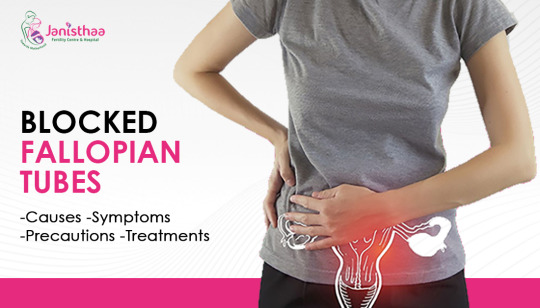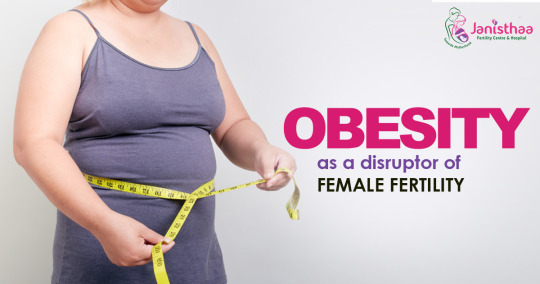#fertility clinic & ivf centre in basaveshwara nagar
Text
Best IVF Center in Basaveshwara Nagar, Bangalore

PESA Treatment in Bangalore
Janishtaaivf is committed to giving far-reaching care to patients battling with barrenness and other regenerative endocrinology issues Best IVF Centre in Basaveshwara Nagar. We offer a full scope of fruitlessness analytic testing and helped regenerative innovations including IVF. Our fruitfulness specialists and staff are committed to giving you the most significant level of care and empathy.
We utilize customized and demonstrated way to deal with give both exhaustive and steady arranging toward the conclusion and treatment of gynaecologic and ripeness issues Best IVF Centre in Basaveshwara Nagar.
Related Article: Egg Donation Treatment in Bangalore
Why Choose Janisthaa Fertility?
Agreeableness
We offer caring, understanding driven and exploration-based top of the line care.
Moral
We put stock in being good and moral to give the best administrations to our clients
Straightforwardness
Our point is to help significantly more individuals access fruitfulness aptitude and unprejudiced counsel
Reasonable IVF
Straightforward, comprehensive, and serious richness treatment bundles without shrouded costs.
Best in the class IVF lab
We utilize world-class, cutting edge innovation and types of gear to guarantee the best of results.
High Pregnancy Rate
Our time and care are guaranteed and the outcomes represent themselves.
Janisthaa IVF and Fertility Treatments
It includes taking medicine to incite ovulation by urging eggs to create in the ovaries and delivered, expanding the opportunity of origination through manual semen injection or planned intercourse.
In vitro treatment is a sort of Assisted regenerative technology(ART)that works by utilizing a mid of surgeries and meds to empower sperm to prepare an egg. The treated egg is embedded in the female uterus.
Intrauterine insemination (IUI) is a type of fruitfulness treatment that is done to encourage preparation by putting sperm inside the female uterus.
Intracytoplasmic sperm infusion (ICSI) includes pitching up a solitary sperm by means of a fine glass needle and infusing it legitimately into each egg.
Percutaneous Epididymal Sperm Aspiration(PESA) is a noncareful procedure that involves passing a little needle straightforwardly into the head of the epididymis by means of the scrotal skin.
Testicular Sperm Aspiration (TESA) includes the inclusion of needle in the testis and suctioning liquid and tissue with a negative weight.
Oocyte gift is a piece of current helped reproductive care including the utilization of gave oocytes, made use by a lady with numerous conceptive issues and mature ladies.
It is a sort of open medical procedure that includes making an entry point of a few inches(<12 inches) long in the midsection.
Meet Our Doctor
Dr. Shwetha Y Baratikkae
M.B.B.S. , D.G.O. , D.N.B. , (O.B.G.) , F.I.R.M
Dr. Shwetha is a specialist in conceptive medication and laparoscopic medical procedures. She is likewise a very much qualified obstetrician and gynecologist, equipped for dealing with high hazard pregnancies and gynecological issues.
Dr. Shwetha is extremely enthusiastic about helped regenerative strategies and she continually refreshes herself with the most recent procedures. She carefully puts stock in performing fruitfulness medicines in the most moral way by acquainting the patients with the most non-meddling tranquil treatment. Her treatment and conventions are individualized and tweaked to every patient; this has ended up being extremely fruitful.
Read More: https://bit.ly/2VOm6cM
#fertility clinic & ivf centre in basaveshwara nagar#tesa infertility treatment basaveshwaranagar#female infertility treatment in basaveshwara nagar#ivf doctors in basaveshwaranagar#ivf success rate in basaveshwara nagar#male fertility treatment in basaveshwara nagar#laparoscopic surgery in basaveshwara nagar#pcos treatment in basaveshwara nagar#ovulation treatment in bangalore
1 note
·
View note
Text
IVF – Birthing Hope with the Help of Science
IVF has covered quite a distance in the past four decades, thereby giving hope to couples yearning for a newborn. According to recent data, 10-15 % of married couples face infertility in India. That is a vast 27.5 million couples. With the advancement in the medical field, IVF has given hope to have a little one at home. Here let’s take a peek to know what this IVF is and why couples need to go for it and when do they go for it.
What is IVF?
IVF or invitro fertilization is a clinical procedure wherein the woman’s egg and man’s sperm are united or fertilized in a glass dish in a clinical lab. The natural process that occurs during conception is medically done in a controlled environment by infertility specialists. On successful fertilization,the embryo is let to grow for 5 to 6 days till it reaches ‘blastocyst’ stage. The next stage in ‘Embryo transfer.’ In a short medical procedure, the embryos are transferred to the woman’s uterus. On successful implantation of the embryo in uterus it further results in pregnancy.
When is IVF preferred?
After quite a few unsuccessful attempts over some time, it is advisable for couples to go for medical advice. With recommended blood tests and medical checks, you get to know the reason behind the failure. The reason can be in either one of the couples resulting in the inability of natural conception.
The common medical issues found in women are:
· Obesity
· Hypothyroidism
· Hormonal Imbalance
· PCOS (Polycystic ovarian syndrome)
· Damaged Fallopian tubes
· Fibroids/Endometriosis
The common medical issuesfound in men are:
· Low sperm count
· Immobility of sperms
· Chromosomal or hormonal abnormality
Anyone one of the reasons above will result in infertility. It has also been found that though none of the above reasons exist among the couple,they still face infertility. They come under ‘Unexplained Infertility’ category. According to the medical practitioners, IVF treatment for unexplained infertility is challenging as they do not know the exact reason for infertility. Knowing the reasons helps the practitioners to plan the mode of treatment for the couple.
Women with damaged fallopian tubes and irregular menstrual cycles can benefit the most from IVF as it surpasses both the hurdles. In case eggs produced are not healthy, you can even opt for a donor egg during IVF.
Male infertility concerning low sperm count and immobility of sperms can be handled with ICSI procedure. In ICSI or intracytoplasmic sperm injection, all you need is only one healthy sperm to fertilize the egg.

Who might not benefit from IVF?
If woman’s ovaries are not producing healthy eggs and not ready to accept from a donor, IVF would not be an answer. It has been found that after 37 years of age women find it challenging to conceive with IVF. A healthy donor egg is a viable option for women nearing 40. In women around 40 years, IVF success rate more with donor eggs.
What other options are available apart from IVF to treat infertility?
The medical fraternities do not go for IVF immediately. Based on the medical reports they decide the course of action.
· For blocked or damaged fallopian tubes are corrected with surgery
· Endometriosis or fibroids are treated with laser treatment
· Ovulation stimulant hormone medications are administered
· IUI procedure (Intrauterine insemination or artificial insemination) is given a try. In this procedure, sperms are injected directly into the uterus.
The failure of the above procedures can make doctors suggest IVF.
The success rate of IVF is dependent on various factors such as:
· Reproductive history of man and woman involved
· Age of woman
· Reason for Infertility
· Lifestyle factor
The success rate is directly related to the woman’s age. Lower the woman’s age higher the success rate. With age approaching 40, the IVF success rate to dips.
Dr. Shwetha Pramodh has been successfully treating infertility in couples at Blossom fertility centre in Basaveshwaranagar. Dr Shwetha Pramodh has more than 13 years of experience in the field of gynecology and reproductive medicine. She is passionate about assisted reproductive techniques. She is continually updating with the latest technologies to equip herself to face challenges while treating infertility.
With couples need as priority Dr. Shwetha Pramodh suggests customized treatment. With the right guidance and proper treatment, you can cross over the bridge of infertility in no time.
IVF procedure takes around 4 to 8 weeks of time. The vital point here is that the couples need to relax and prepare themselves to go through the process as the wait might check the patience and prove to be trying during those weeks.
#Male infertility treatment in basaveshwara nagar#vijayanagar#Obstetrician and Gynaecologist#high risk pregnancy hospital#Fertility center#Best fertility doctors#Best IVF Hospital#ivf treatment#Best IVF doctor#Best infertility clinic#fertility clinic near me#Laparoscopic surgery#IUI treatment#dr shwetha pramodh infertility center reviews#Best Gynecologist#Fertility test centre#Blossom fertility centre
2 notes
·
View notes
Text
Best IVF Clinic in Basaveshwaranagar

Fallopian tubes, also known as Uterine tubes, are part of the female reproductive system that connect the uterus and the ovaries. These tubes aid in the movement of the fertilized eggs from the ovaries to the uterus, every month during the course of ovulation. Conception also occurs in the fallopian tube as the sperm swims through the uterus to reach the tube. Once fertilized by the sperm, the egg moves into the uterus through the tubes for implantation. The tubes are made up of a layer of cells, with hair-like extensions called Cilia, that help carry the eggs.
Blockage of Fallopian tubes known as Tubal Obstruction could be one of the reasons for infertility as it prevents free movement of the sperm to the egg and the fertilized egg to the uterus. This kind of infertility is also known as Tubal Factor Infertility. The blockage could be on side or both sides of the ovaries and is known to affect 30% of the female population. This is usually found when a test for tubal functions called Patency is carried out to check if the tubes are open. Some of the other diagnostic methods used to test blockage are laparoscopy and sonography.
Also, Read– WHY REPEATED IVF FAILURE HAPPENS?
Symptoms
Externally, it is difficult to detect if one suffers from the blockage of the fallopian tubes as there are no overt symptoms of the same. Usually, the case of blockage is detected when there is a failure of conception despite trying for longer periods of time. In a few cases, blockage of the tubes might lead to mild, regular pain on any one side of the abdomen or lower abdominal pain and unusual vaginal discharge. This usually occurs when fluid fills and enlarges a blocked fallopian tube, which is called as hydrosalpinx.
At other times, diseases such as Endometriosis tend to increase the risk for developing blockage of fallopian tubes and are detected through symptoms such as painful menstruation and painful sexual intercourse. Pelvic Infection/Pelvic Inflammatory Disease is another such condition that could lead to blockage and has its own symptoms which include the above-mentioned symptoms and others such as high fever, nausea, and vomiting, etc.
Causes
It has been reported that conditions such as Scar Tissues, Infections, and Pelvic adhesions (bands of scar tissues) can cause a block in the fallopian tubes.
Some of the related disorders and health conditions that could lead to blockage are:
Pelvic inflammatory disease – which leads to hydrosalpinx
Endometriosis – where tissue forming the inner lining of the uterus grows outside the uterine cavity
Sexually transmitted diseases – such as chlamydia and gonorrhea
Past ectopic pregnancy – when the fertilized egg gets stuck in the blocked fallopian tube, which might result in medical emergencies
Fibroids
Past abdominal surgery
Precaution
As Fallopian tube blockage can be caused by sexually transmitted diseases, it is important to take precautions and decrease the risk by using protection during copulation and employ regular screening of STIs
Treatment
In-Vitro Fertilization (IVF)– When there is a blockage, it is harder for the fertilized egg to move towards the uterus. In such cases, IVF is usually recommended, if feasible.
Fertility Drugs– In cases where the blockage has occurred on one-side, fertility may not be affected completely as the egg can still travel through the other tube. Fertility drugs could be prescribed in such cases to increase the ovulation chances
Surgery– In case of blockage due to fewer amounts of scar tissue or adhesions, laparoscopic surgery might be conducted to remove the blockage. Treatment may not possible if scars are found in larger amounts
In cases of ectopic pregnancy or infection, surgery can be performed to remove the damaged parts and connect healthy ones
Chances of pregnancy post-treatment depend on the severity of the blockage and the subsequent treatment given. Thus, it is advisable to consult the experts before opting for any particular kind of treatment. Janisthaa Fertility Centre & Hospital is one such center that is dedicated to providing comprehensive care for all the patients struggling with infertility-related complications. Their dedicated team of top-notch doctors has a track record of high success rate. For a free consultation and more information, visit https://www.janisthaaivf.com/ or call +91 7619198083.
#best ivf clinic in basaveshwaranagar#ivf success rate in basaveshwara nagar#ivf doctors in basaveshwaranagar#fertility hospital bangalore#Janisthaa Fertility Centre
0 notes
Link
#uterine fibroid#male fertility treatment in basaveshwara nagar#laparoscopic surgery in basaveshwara nagar#pcos treatment in basaveshwara nagar#ovulation treatment in bangalore#best fertility centre in basaveshwara nagar#best ivf clinic in basaveshwaranagar
0 notes
Photo

Testicular / Epididymal Sperm Aspiration or Extraction Treatments in Bangalore
Janisthaa Fertility Center and Hospital
Janishtaaivf is dedicated to giving extensive consideration to patients doing combating with desolateness and other conceptive endocrinology gives Best IVF Center in Basaveshwaranagar. We offer a full extent of infertility expository testing and helped conceptive advances including IVF. Our productivity pros and staff are focused on giving you the most huge degree of care and compassion.
Read More: https://bit.ly/2VOm6cM
#laparoscopic surgery in basaveshwara nagar#pcos treatment in basaveshwara nagar#ovulation treatment in bangalore#best fertility centre in basaveshwara nagar#best ivf clinic in basaveshwaranagar#ovulation treatment centre in basaveshwara nagar#ovulation hospital in bangalore#fertility hospital in basaveshwaranagar bangalore
0 notes
Link
#Best Gynecologist in basaveshwara nagar#IUI treatment in basaveshwara nagar#Fertility test centre in basaveshwara nagar#Laparoscopic surgery for infertility in basaveshwara nagar#Best infertility clinic in basaveshwara nagar#Best IVF doctor in basaveshwara nagar#ivf treatment in basaveshwara nagar#Best IVF Hospital in basaveshwara nagar#Best fertility doctors in basaveshwara nagar#Fertility center in basaveshwara nagar#high risk pregnancy hospital in basaveshwara nagar
0 notes
Link
#pregnancy#Best IVF Hospital in vijaya nagar#ivf treatment in basaveshwara nagar#ivf treatment in vijaya nagar#Best IVF doctor in basaveshwara nagar#Best IVF doctor in vijaya nagar#Best infertility clinic in basaveshwara nagar#Best infertility clinic in vijaya nagar#fertility clinic near me#Laparoscopic surgery for infertility in basaveshwara nagar#Laparoscopic surgery for infertility in vijaya nagar#IUI treatment in basaveshwara nagar#IUI treatment in vijaya nagar#dr shwetha pramodh infertility center reviews#best fertility hospital in basaveshwaranagar#fertility hospital in basaveshwaranagar#best ivf centre in basaveshwaranagar#top ivf center in basaveshwaranagar#irregular menstual cycle#infertility#Ovulation problems
0 notes
Photo

The complete guide to treating infertility in couples and the best solution by the best infertility doctor in Bangalore
#best fertility hospital in basaveshwaranagar#fertility hospital in basaveshwaranagar bangalore#best fertility centre in basaveshwara nagar#fertility clinic & ivf centre in basaveshwara nagar#reproductive endocrinology treatment in bangalore
0 notes
Link
Janisthaa Fertility Center And Hospital in Basaveshwara Nagar, Bangalore has a well-equipped healthcare facility with modern equipment to support better treatment of patients. There are separate waiting and consultation areas which allow enough space for patients to wait conveniently at the premises. A specialized gynaecologist, the doctor helps women in understanding the actual cause of various gynaecological issues and prescribes the best treatments for the same. Also, keeping in mind how stress has a direct impact on health, the doctor also suggests ways and means to keep stress at bay and enjoy a healthier life. The doctor charges Rs. 100 as the consultation fee. Payments can be made via various modes like Cash. The clinic is operational between Open 24 Hrs - Open 24 Hrs
1 note
·
View note
Photo

PESA Treatment in Bangalore
Janishtaaivf is committed to giving far-reaching care to patients battling with barrenness and other regenerative endocrinology issues Best IVF Centre in Basaveshwara Nagar. We offer a full scope of fruitlessness analytic testing and helped regenerative innovations including IVF. Our fruitfulness specialists and staff are committed to giving you the most significant level of care and empathy.
Read More: https://bit.ly/2VOm6cM
#best fertility centre in basaveshwara nagar#best ivf clinic in basaveshwaranagar#ovulation treatment centre in basaveshwara nagar#ovulation hospital in bangalore#fertility hospital in basaveshwaranagar bangalore#tesa treatment in bangalore#ivf hospital in basaveshwara nagar#pesa fertility treatment bangalore
0 notes
Text
Male Infertility: Causes and Symptoms
According to the World Population Prospects, the fertility rate of Indians has reduced by 50% in 2015-2020 as compared to last forty decades from 4.9 to 2.3. It is further expected to reduce to 2.1 by 2025-2030. As per statistics of the Indian Society of Assisted Reproduction, the fertility rates in urban areas is already on par with the developed countries and one out of six couples are affected. Although generally infertility is associated more with women, studies now has shown that factors associated with both men and women can result to the condition. It is now known that less than 30% of men have normal semen characteristics that is adding to the cause of infertility. In fact, some studies have appropriated 40 – 50% of infertility to be due to the male factor.
Male infertility can be due to many reasons. Starting from issues with the Sperm such as – low sperm production, low sperm concentration (less than 15 million sperm per milliliter of sperm), poor motility (movement), morphology issues (size and shape), abnormal sperm functioning or blockage in delivery of the sperm etc. These are anatomical issues. Other causes related to the human physiology that affect fertility could be physical illnesses such as diabetes, injuries, erectile dysfunction, endocrine disorder (hormonal), and other chronic health problems. Environmental factors such as toxins, pesticides, herbicides, cosmetics, preservatives, cleaning materials, pharmaceuticals, heavy metals, free radicals and industrial by-products are also known to have an effect.
Most commonly discussed factors of male infertility includes Lifestyle factors, which refers to an individual’s way of life, interests, behavior orientation etc. Today’s fast paced life is more demanding than ever. Conditions such as obesity, habits such as drinking and smoking and stress are commonly found in urban areas as a result of the changing times. The three factors mentioned above form a kind of vicious cycle and are inter-linked. Demands on both personal and professional lives – to excel in every sphere, follow the rat-race, to keep up with the rest of the crowd creates a lot of anxiety and ultimately causes stress. Stress is a result of lack of resources to deal with the challenges presented. To de-stress, either positive or negative coping mechanisms are adapted. Positive mechanisms include healthy habits such as exercising, relaxation, taking control of the situation etc., whereas negative ways of coping with stress include indulging in habits such as smoking and alcoholism. Another reaction to stress includes comfort eating which, coupled with sedentary lifestyle leads to Obesity. Easy access to fast food from restaurants also add up to increase in cholesterol levels etc. Thus, lifestyle factors of obesity, stress and drinking & smoking can affect fertility levels in the younger generation.

The solution to Male Infertility treatment depends on the cause of the problem. Options include surgery to correct abnormalities in the anatomy or damage to reproductive organs, treating infections, treatment for intercourse problems, medications for hormonal imbalance and dysfunction etc. Surrogacy or using a third party for donating eggs or sperms are yet another option. But one of the most effective forms of treatment include In-Vitro Fertilization (IVF) which is a part of Assistive Reproductive Technology (ART). In simple terms, In-Vitro Fertilization is a procedure where sperm are mixed with multiple eggs collected from the woman in a test tube in a laboratory for fertilization. The eggs that are fertilized in this manner are then placed in to the uterus of the woman.
Often, people with infertility problems spend a lot of time and money for several years, with no avail and proper guidance, adding to the stress and anxiety. Their dreams of parenthood can seem distant, running pillar to post and ‘doctor-shopping’. What is needed in these situations is the right information from a credential and trustful source. A caring and empathetic environment, where feelings and emotions are acknowledged and a supportive shoulder is lent to the yearning parents to be is half the battle won.
One such center where the staff is friendly and professional, with a doctor who sets the right expectations with no false promises and values the concerns of the clients is that of Blossom Fertility Centre of Dr. Swetha Pramodh, Obstetrician and Gynaecologist, located at Basaveshwarnagar, Bengaluru. The mission of this center is to provide advanced reproductive, endocrine and fertility care to transform the lives of people. The Center has been highly acknowledged by numerous clients across the globe. Thus, to unlock the emotions of parenthood, one can schedule a free consultation today for a thorough understanding and where no call or problem goes unanswered.
#Male infertility treatment#Obstetrician and Gynaecologist in basaveshwara nagar#high risk pregnancy hospital#Fertility center in basaveshwara nagar#fertility doctors#IVF Hospital#ivf treatment#IVF doctor in basaveshwara nagar#infertility clinic in basaveshwara nagar#Laparoscopic surgery for infertility#fertility clinic near me#dr shwetha pramodh infertility center reviews#Gynecologist#Fertility test centre#Blossom fertility centre
1 note
·
View note
Link
It can then be used in the process of in-vitro fertilization (IVF) or intracytoplasmic sperm injection (ICSI) whenever required and combined with the sperm in the lab and implanted in the uterus at a later stage. There could be a lot of reasons why people choose egg freezing. Ill-health and subsequent treatments that can alter the quality of eggs (such as cancer or an auto-immune disease), any other surgeries that can damage the ovaries, ovarian diseases, or simply the wish to get pregnant at a later stage in life due to personal reasons, etc. Whatever the reason, it is also important to understand the process, preparations required, potential risks, cost factor, post-procedure, results, etc to make an informed decision.
Also, Read SPERM & EMBRYOS FREEZING
Process of Egg Freezing
Egg Freezing is usually done in 3 stages.
Stage one consists of ovarian stimulation where synthetic hormones/ medications are ingested to stimulate the ovaries into producing multiple eggs than a single egg that develops monthly. With regular monitoring, blood tests, ultrasounds, the levels of estrogen that help the follicle (fluid-filled sacs where the eggs mature) develop, is monitored for about 10 to 14 days.
Once the eggs are matured, Egg Retrieval is performed under sedation or anesthesia. The most common method used is the Transvaginal Ultrasound Aspiration where ultrasound is performed to assess the follicles. A needle with a suction device at the end is inserted through the vagina into the follicle. The suction device enables the removal of eggs, up to 15 per cycle.
The last stage is Freezing. The harvested eggs are cooled to subzero temperatures, up to -196 degrees (which slows the maturation of the eggs) to preserve them for further use. Several methods of freezing are employed depending on the situation. These are known as Cryoprotectants (to prevent the formation of intracellular harmful ice crystals due to deep freezing), Slow-freezing technique (programmable freezers that freeze the eggs slowly) and Vitrification (most recent and popular technique). When required, the eggs are thawed, fertilized with a sperm in the laboratory and implanted into the uterus
Factors and Risks
The chances of a successful pregnancy through egg freezing is seen to be around 30-60%. Several processes are adopted to assess the success rates of freezing including simple blood tests and ultrasound. Ovarian Reserve Testing is used to test the concentration of follicle-stimulating hormone and estradiol in the blood on the 3rd day of the menstrual cycle that helps predict how the ovaries will react to the treatment. The success rate of pregnancy is clearly dependent on the age at which the eggs have been preserved and mostly not recommended for women above the age of 38 years. Miscarriages are said to be higher among older women mainly due to having older eggs. It is also a known factor that the fertilized egg is easier to preserve; however, an unfertilized egg, though difficult to preserve, has higher rates of a successful pregnancy.
Related Article– DO’S AND DON’TS TO ENSURE A HEALTHY IVF PREGNANCY
Cost of Treatment
The expenses of Egg Freezing per se tends to be on the higher range. The process is also coupled with additional costs of annual storage fees and depending on the number of years that a person wants the eggs stored, the expenses might grow on. In some cases, eggs have been stored for up to 15 years.
Side-Effects
Visiting an expert fertility clinic with a good success rate should not result in debilitating side-effects or life-threatening conditions post the required procedure. The procedures normally do not cause bleeding, infection, or damage to blood vessels or bladder, or the bowel and are seen in very rare cases. Reports of people suffering from slight weight gain, abdominal pain, bloating, nausea, vomiting, and diarrhea is quite normal. Instances of Ovarian Hyperstimulation Syndrome or swollen and painful ovaries have also been reported due to injectable fertility drugs after the eggs have been retrieved. However, this subsides with post-procedure care. The only unforeseen effects could be the psychological effects of anxiety with success rates of pregnancy in the future.
Also, Read TWIN PREGNANCY WITH IVF?
It is therefore important that such procedures are performed by experts and a team of caring staff in a fertility clinic like the Janisthaa Fertility Clinic at Basaveshwarnagar, Bengaluru. The clinic has a dedicated team of top-notch doctors who have record success rates. Moreover, treatments provided are 100% personalized, patient-centric with state of the art research and IVF facilities. For more information, visit the website https://www.janisthaaivf.com/ or call +91 7619198083 to book online consultation or to clarify more information.
#uterine fibroid#best fertility centre in basaveshwara nagar#best ivf centre in basaveshwaranagar#ivf success rate in basaveshwara nagar#fertility clinic & ivf centre in basaveshwara nagar#tesa treatment in bangalore#fertility clinc bangalore#female infertility treatment in basaveshwara nagar
0 notes
Text
ENDOMETRIOSIS: SYMPTOMS, COMPLICATIONS, AND TREATMENT

Endometriosis is a gynaecological problem that can be treated and cured. It is caused usually when the endometrial implants along with the tissues are seen in other parts of the body other than the uterus.
When the condition is serious, the tissues get harder and thereby break down and create imbalances in the menstrual cycle balance with the scarring of the tissues. This can affect the deep part of your body which may also lead to organ fusion and anatomical changes.
What is Endometriosis?
Endometriosis is endometrial implant tissue that is present inside the uterus starts to form in the other body parts. This tissue comprises of gland, connective tissue and blood cells. Usually these tissues are found growing in the uterus and their major function is to create fine lining in the womb to ease the process of ovulation.
It is abnormal when these tissues start growing outside the uterus areas. This condition is known as endometriosis. Such tissues can develop at any parts of your body causing several issues and illness. Pelvic area of your body is more prone to be affected by this condition. Some other body parts that are affected by endometriosis include the ovaries, fallopian tubes, peritoneum, lymph nodes etc.
This condition can be painful during your menstrual cycle. A displaced tissue cannot be expelled during your menstrual periods which otherwise would be expelled when it is normally placed only within your uterus.
It can thus not only cause physical pain but also impact the normal functioning of other body organs when the lesions grow larger. For instance, it can block your fallopian tubes when the thickened tissues are present over there.
Symptoms
There are several symptoms for endometriosis which can be similar to the medical problems like pelvic inflammatory disease (PID), ovarian cysts, irritable bowel syndrome (IBS) etc.
Common signs and symptoms of endometriosis include:
Heavy menstrual cramps
Continuous lower back and pelvic pain
Extended period beyond 7 days
Heavy menstrual bleeding
Problems in the bowel and urinary functions like diarrhoea, constipation and bloating.
Nausea and vomiting
Bloody stool or urine
Fatigue
Pain during intercourse
Spotting or bleeding between periods
One of the main problems for endometriosis is the pain it gives. However, the severity of the pain cannot be correlated to the seriousness of the disease. The pain will subside post menopause when the body stops the production of estrogen. If you have undertaken any hormone therapy during menopause, it can persists the symptoms. Once you are pregnant, the symptoms and pain would subside.
Complications of Endometriosis
Endometriosis can have certain health complications. One of the main issues is related to your fertility. You may need to take appropriate infertility treatments for the purpose of getting pregnant.
It can also develop issues like ovarian cancer when the tissues start growing outside the uterus area. Ovarian cysts are also seen evident in Endometriosis patients.
Scar and adhesion development are another complications of endometriosis
How endometriosis is treated ?
The side effects of endometriosis can frequently be made do with painkillers and hormone medicine, which help counteract the condition meddling with your everyday life. However, there’s no known solution for endometriosis. Patches of endometriosis tissue can once in a while be precisely removed to improve symptoms and fertility. Endometriosis can be a troublesome condition to manage, both physically and emotionally.
Endometriosis and pregnancy
One of the fundamental issues of endometriosis is trouble getting pregnant or not having the option to get pregnant by any means. Despite the fact that medical procedure can’t ensure you’ll have the option to get pregnant, great proof removing endometriosis tissue with a laser or an electric current during keyhole (laparoscopic) surgery can improve your odds of having an effective pregnancy.
If you have endometriosis and you do get pregnant, the condition is probably not going to put your pregnancy in danger. Pregnancy once in a while diminishes the indications of endometriosis, in spite of the fact that they regularly return once you’ve conceived a baby and completed the process of breastfeeding, and the menstrual cycle comes back to normal.
Are you worried about the right treatment and cure for endometriosis? In case your fertility is affected by this health condition, consult the expert doctor, Dr. Shwetha Y Baratikkae personalized care and effective treatment.
#ivf hospital in basaveshwara nagar#fertility hospital in basaveshwaranagar bangalore#pesa infertility bangalore#tesa infertility treatment basaveshwaranagar#fertility clinic & ivf centre in basaveshwara nagar#Janisthaa Fertility Centre#Fertility hospital bangalore#fertility clinic bangalore#fertility center bangalore
0 notes
Link
#reproductive endocrinology treatment in basaveshwaranagar#fertility clinic & ivf centre in basaveshwara nagar#tesa infertility treatment basaveshwaranagar#female infertility treatment in basaveshwara nagar#ivf doctors in basaveshwaranagar#ivf success rate in basaveshwara nagar#male fertility treatment in basaveshwara nagar
0 notes
Text
Laparoscopic Surgery for Infertility

Laparoscopic Surgery for Infertility in Basaveshwara Nagar
What is Laparoscopy?
Laparoscopy is a surgical procedure that is carried out for diagnosis and as a treatment for several conditions. It is a procedure that helps the physician to get a view of the internal organs in the abdominal or pelvic region and their condition with the help of tube. It is recommended when other diagnostic tools such as ultrasound or X-Ray does not yield clear results.
Laparoscopy is usually carried out to assess reasons for infertility, assess painful and heavy periods, as a diagnostic tool to take a biopsy, assess abdominal pain or pain in the pelvic region. It is also used in evaluating certain types of cancer of the ovaries, uterus, and cervix. As a treatment, it is used to treat endometriosis, remove ovarian cysts, fibroids, blockages, and scars, treat ectopic pregnancy, etc. The procedure is very safe with rare cases of complications
How is Laparoscopic Surgery done?
Laparoscopy is conducted in a hospital set-up under general anesthesia by a physician or a gynecologist
Small incisions or cuts are made in the pelvic or abdominal region that allows for the laparoscope to pass through. These are minor incisions and heal faster causing less pain compared to normal surgery. This is also called as Keyhole surgery or Minimal Invasive surgery
A laparoscope or a thin tube that has a camera and light fixed at the end of the tube is then inserted in to obtain a view of the internal organs. To obtain a clearer picture of the organs, gas is pumped to inflate the region. A catheter can also be used that allows for clearer imaging of the organs
Once the diagnosis or treatment is done, the gas (carbon dioxide) is removed the patient can return home in a few hours without any pain and a few stitches.
Read more: https://bit.ly/2WJ6JSq
#ivf treatment in vijaya nagar#ivf treatment in basaveshwara nagar#Best infertility clinic in basaveshwara nagar#Laparoscopic surgery for infertility in basaveshwara nagar#IUI treatment in basaveshwara nagar#Best Gynecologist in basaveshwara nagar#Fertility test centre in basaveshwara nagar#Obstetrician and Gynaecologist in basaveshwara nagar
0 notes
Text
Obesity and Fertility | Impact of Obesity on Female Fertility | Janisthaa Fertility Centre

Obesity is increasing worldwide and has a large scale negative influence on human health, including reproductive health. Obesity has a catastrophic influence not only on female fertility but it is affecting even the male fertility also.
#Janisthaa Fertility Centre#Obesity#Fertility#Obesity and Fertility#Impact of Obesity on Female Fertility#Janisthaa Fertillity Centre#IUI treatment in basaveshwaranagar Bangalore#iui treatment in basaveshwara nagar#reproductive endocrinology treatment in basaveshwaranagar#fertility clinic & ivf centre in basaveshwara nagar#tesa infertility treatment basaveshwaranagar#sperm donor process in basaveshwara nagar bangalore#female infertility treatment in basaveshwara nagar#ivf doctors in basaveshwaranagar#ivf success rate in basaveshwara nagar#male fertility treatment in basaveshwara nagar
0 notes